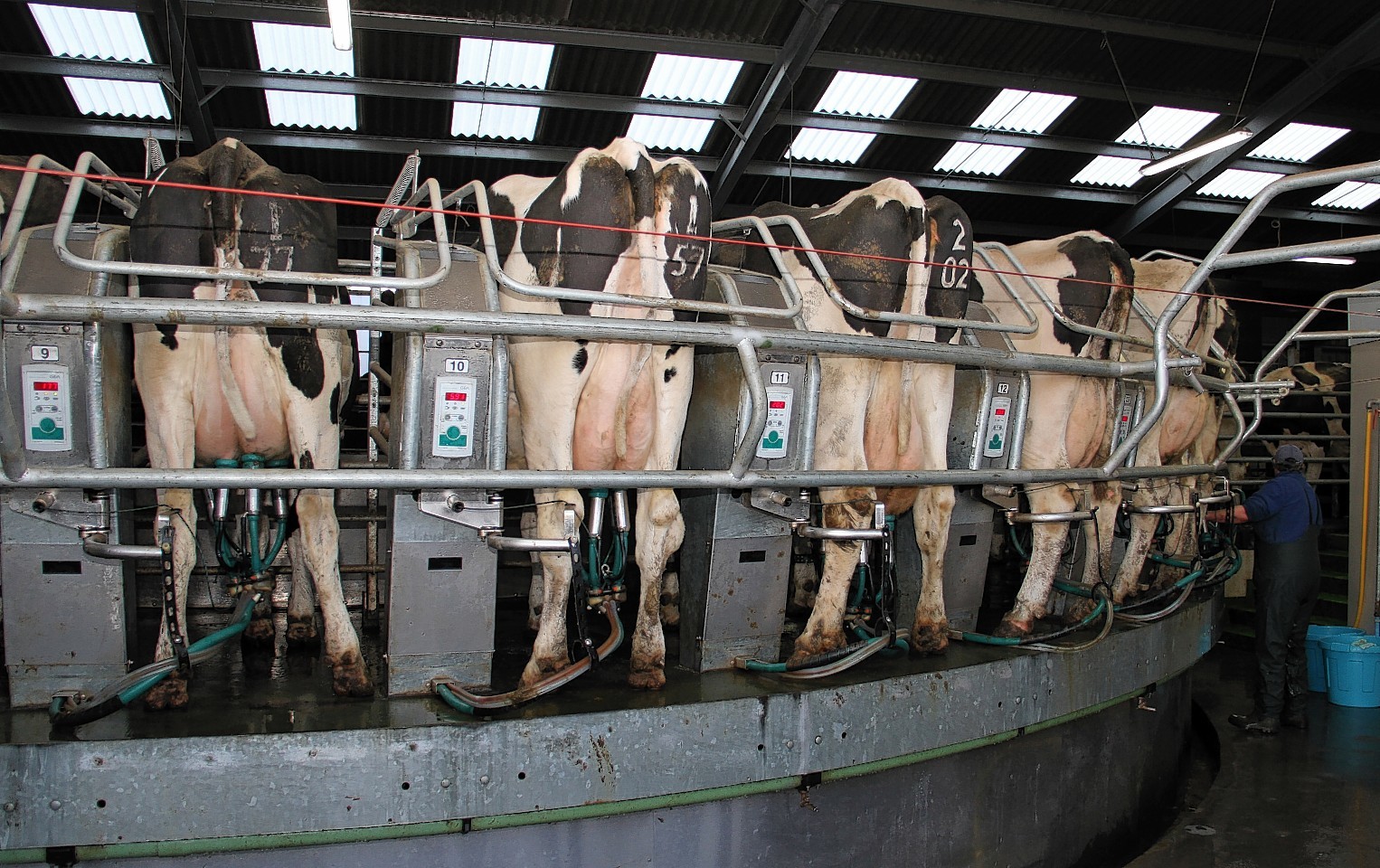Dairy companies must adopt better pricing policies to address an ongoing lack of trust in the sector, according to NFU Scotland.
The plea comes in the wake of recent milk price cut announcements by Arla, First Milk and Muller Wiseman.
The union has accused processors of using market indicators to drop prices quickly but failing to up the farmgate milk price when global commodity prices are strong.
It has also attacked companies for making price moves based on their competitor’s performance and not their own.
“If milk buyers are genuinely paying as much as they can, which is the case with co-ops, then the performance of the business must be challenged. Are private buyers genuinely sharing risk and reward, or setting prices based on competitor’s prices?” said NFU Scotland dairy policy manager George Jamieson.
UK farmgate prices rose too slowly and not as high as they should have in 2013 when global commodity values were historically high, added Mr Jamieson.
He said market indicators suggested prices such as 37p a litre were achievable, but nothing higher than 34p a litre was achieved at the time.
“So when farmers are told that 30p a litre is in line with the market then why should this not be the case when wholesale prices are at their peak?” added Mr Jamieson.
“The argument that these levels of prices are not achievable should look at the prices received by our European competitors, who did reach higher prices and at a faster rate.”
NFU Scotland urged dairy farmers to judge their milk buyer based on their performance over a long-term period, rather than the performance of their competitors.
“We are now in a global market, but the UK farmgate price still largely remains below European, even New Zealand prices,” said Mr Jamieson.
“In an increasingly competitive dairy world, UK dairy farmers, who are genuinely competitive, must ask their processors if they are.”
He urged elected farmer representatives to ask dairy companies, both co-op and private, why their milk prices have dropped.
“Individual milk processors who value their supplying farmers must explain exactly why they are dropping prices, and farmer reps must be professional and able enough to challenge this,” added Mr Jamieson.
“Tit for tat price moves are not acceptable and this is pricing based on competitors’ performance and not their own, which is clearly an issue farmer reps should address.”
